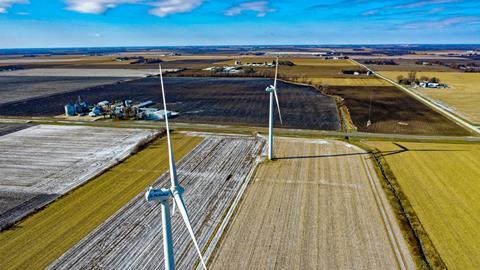Food production should be given equal weighting alongside environmental issues in pivotal Land Use Framework, warns NFU
Food production should be given equal priority alongside the environment in the government’s new Land Use Framework (LUF), the NFU has said.
The farming body said it consulted widely with its membership before contributing to the proposed framework, which has been out for public consultation since January.
The LUF is the first in a series of new government strategies for land, which will also include the upcoming Food Strategy, Carbon Budget and Farming Roadmap.
It is considered to be a highly significant piece of work that will map where land in England should be used for housing, energy, food production and nature.
“With the UK population set to increase by 10 per cent by 2050, the huge number of competing demands for land use, including housebuilding, energy, leisure and recreation, and critical national infrastructure, will only continue to grow,” said NFU president Tom Bradshaw.
Bradshaw said geopolitical tensions and the vulnerability of global food supply chains, alongside an unpredictable climate and extreme weather, are making food production at home much harder. “We should not be adding to this by taking land out of production and assuming we can maintain the same levels of production,” he said.
“As the government has repeatedly stated, food security is critical to the nation’s resilience, so it’s vital we invest in homegrown food production and ensure we make the best use of every hectare of our agricultural land.”
The NFU says it wants a target for British food production, similar to legislated targets on the environment, as well as a “multi-functional” land use strategy.
“We cannot allow food to become the poor relation,” he said, highlighting the pressures faced by UK farming over the past 18 months, including higher national insurance costs and the closure of the Sustainable Farming Incentive scheme.
“But we now have the opportunity, through the LUF, to make the best use of our most productive agricultural land. Alongside this, we need a trade policy with a robust system of core standards for food imports that protect farmers and consumers from imported food that would be illegal to produce here,” he added.
The farming trade body was among other sector organisations, including sustainable food alliance Sustain and CPRE The Countryside Charity, which submitted feedback on the proposals.
All feedback will be used to shape the final Land Use Framework, which is due to be published later in 2025.




